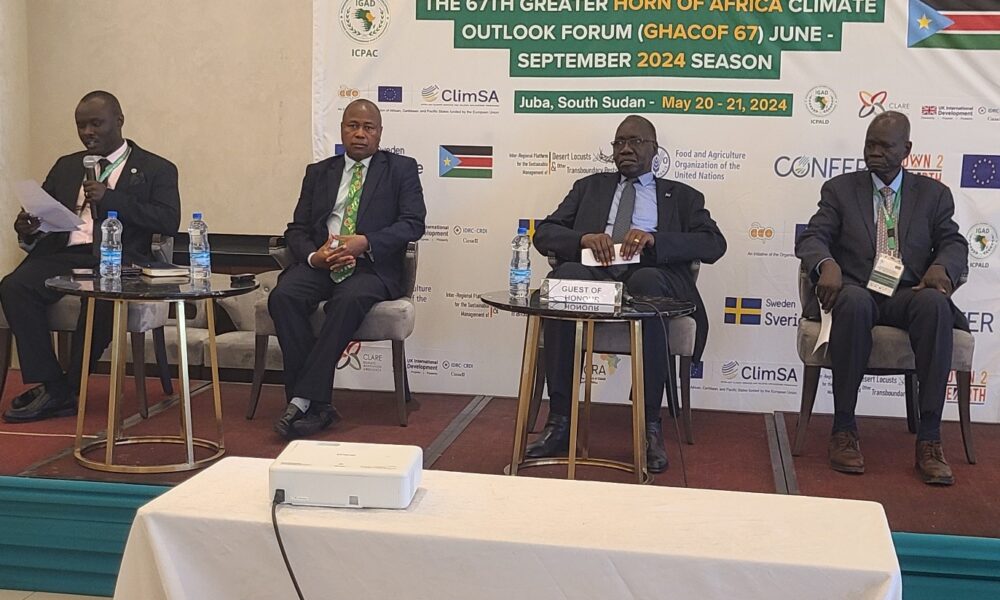By Kei Emmanuel Duku
Climate experts are calling for increased local financing to address the growing impact of climate change in the region.
This appeal was made during the 67th Greater Horn of Africa Outlook Forum in Juba. The forum, held from May 20th to 21st, highlighted the vulnerability of communities across the Horn of Africa to extreme weather events like floods and droughts.
Experts estimate that one million people in the region are already facing food insecurity due to climate change.
Winnie Khaemba, a climate scientist with IGAD Climate Prediction and Application Centre (ICPAC), pointed out that while all 11 member states in the Greater Horn of Africa have pledged to contribute to National Adaptation Plans (NAP) and National Determined Contributions (NDCs), only 15% of the promised funding has materialized. This funding gap leaves communities exposed during disasters.
“National adaptation plans have the potential to support vulnerable groups like farmers and pastoralists,” Khaemba said. “However, these plans require proper implementation and financial backing from local authorities.”
Khaemba urged policymakers to explore local revenue sources for disaster preparedness and response, citing Kenya’s County Climate Change Fund Bills as a potential model where local communities participate in policymaking.
“By 2025, all least developed countries need updated plans to access the Loss and Damage fund,” Khaemba added. “Policymakers need to prioritize planning and local financing strategies, as the international community has been slow to deliver on promised climate finance.”
Abebe Tadege, another climate expert at ICPAC, expressed concerns about the slow pace of implementation of the Loss and Damage Fund, adopted at the COP28 Paris Agreement.
He noted that Western nations, the biggest emitters, have only pledged $700 million, far short of the $300 billion annually needed by 2030 to support developing countries.
“Many Horn of Africa countries may miss out on this fund due to stringent access requirements,” Tadege said. “Documenting climate damages and losses, including casualties from floods and droughts, is crucial to qualify for the fund.”
In the absence of reliable international funding, experts recommend community-driven solutions.
Geoffrey Sabiiti, a climate adaptation officer at ICPAC, emphasized the importance of cross-border information sharing and local community involvement in climate change projects.
“Early resource mobilization and pre-planning are crucial to minimize climate impacts,” Sabiiti said.
“Local policies allowing for temporary migration during droughts and readily available contingency budgets are essential.”
Dr. Majok Chol, a researcher from the University of Oxford, highlighted the need for modern water harvesting technologies to support agriculture during dry spells.
“Local governments should invest in training communities on rainwater harvesting techniques,” Chol said. “Ultimately, locally developed solutions are most effective in addressing local challenges.




